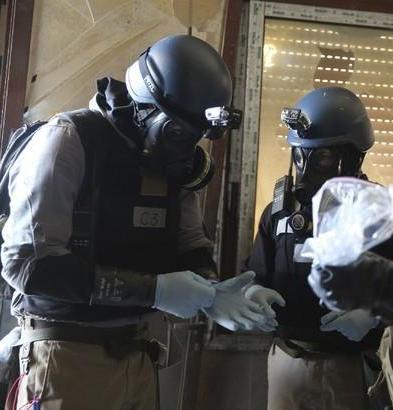Syria, Iraq, and the specter of chemical warfare
A Syrian opposition group claimed Tuesday that Bashar al-Assad’s government carried out a chlorine-gas attack in the northern town of Sarmin, killing six people and injuring dozens more on Monday night. Government helicopters reportedly dropped barrel bombs full of the toxic chemical—if inhaled, the gas can burn the lungs, choking victims to death. The alleged attack would be the latest in a series of reported uses of chemical weapons in the region, and it raises questions about the 2013 deal between Syria, Russia, and the United States to destroy the Syrian regime’s chemical weapons stockpile.
Unless the U.N. Security Council takes enforceable measures to ensure accountability, we would be fooling ourselves to believe that Assad will stop gassing innocent people in Syria.
Coalition spokesman Salem al-Meslet said in a statement
Collecting the samples needed to verify the details of chemical-weapons attack is extremely difficult in a warzone. If verified, the latest use of chemical bombs would expose a major gap in the weapons deal: Chlorine gas has various industrial and sanitary uses (e.g., pool cleaning) and isn’t really considered a chemical weapon until it’s used as one. Syria never included it on its list of declared chemical weapons, and Monday’s alleged attack would confirm Kerry’s fears that “our work is not finished.”

Middle East syria gas